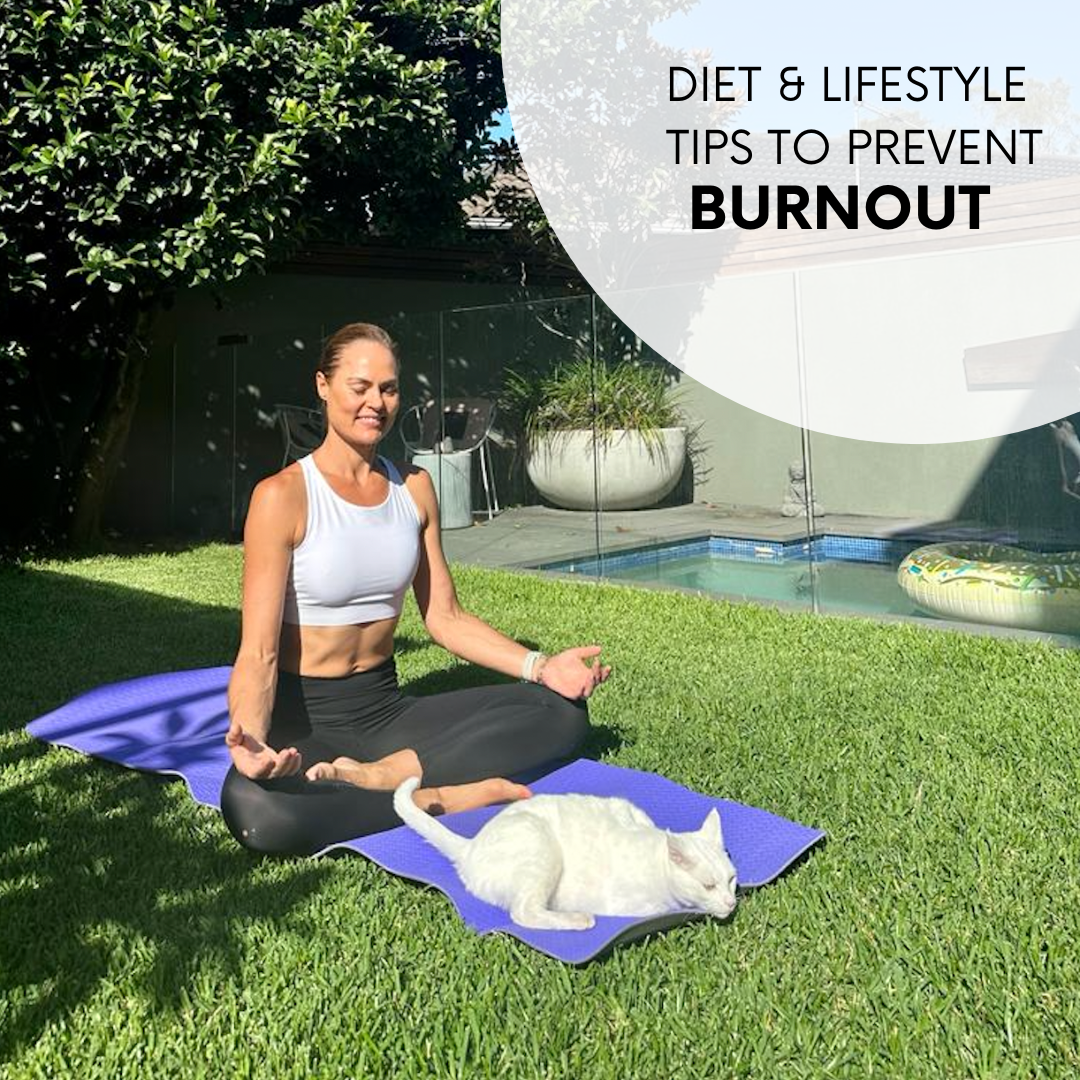In response to stress (real and perceived) our body pumps out cortisol. Overtime, if we are under constant stress, our adrenal glands cannot handle such a high output and this can lead to low or insufficient cortisol production – in other words “burn out.”
Common symptoms of burnout include unrelenting fatigue, brain fog, constantly or easily getting sick, inability to lose weight, low libido and low mood.
Overcoming burnout, or preventing it in the first place, would be easy if we could simply remove all stress from our lives and just chill out!
Unfortunately, for the majority of us, that is just not possible!
Instead, we need to find ways to refill our cups, give back to our nervous system and help our body better handle and adapt to stress.
This doesn’t just mean mentally but also physically. If our body is undernourished or deficient in vitamins and minerals, it won’t be best placed to cope with stress.
So, with that being said, if you are burnt out or feel like you’re on the way there, here are 5 “low hanging fruit changes” to make today!
Make coffee work for you –if you drink coffee, aside from limiting it to 1 cup per day, have it at around 9am-10am in the morning when cortisol starts to drop off and this will make the most of the boost from caffeine. Avoid having coffee on an empty stomach upon rising as this can spike cortisol leading to a bigger crash.
Choose ‘slow carbs” – blood sugar balance goes hand in hand with cortisol. It’s really important to focus on slow-release carbs which won’t spike blood sugar and insulin. Replace all refined carbs with wholegrain varieties such as brown rice, quinoa, wholegrain bread, oats, sweet potato, cooked and cooled white potato, legume pasta etc. Make sure to eat carbs alongside a source of fat and protein to further slow the release of sugar into the bloodstream.
Swap cardio for restorative exercise – high intensity exercise such as running and HIIT can be an added stress on the body, so choosing more low impact and restorative exercise such as yoga, t’ai chi, pilates and walking in green space is a beneficial approach to take when stressed.
Adopt some form of meditative practice – whilst meditation is an important part of my anti-stress routine, not everybody responds well to meditation. Thankfully there are so many other practices to help relax the body and mind and it’s about finding that works for you because if you don’t get results or enjoy it, you aren’t likely to stick with it. Some alternative practices may include:
- Deep diaphragmatic breathing – set aside a few minutes each day or multiple times per day to do this
- Alternate nostril breathing
- Getting out in the sunshine and laying on the grass
- Laugh therapy – yes a true belly laugh is the best medicine!
Fill your diet with nutrients supportive of the nervous system including:
- Vitamin C – needed by the adrenal gland for the production of cortisol and neurotransmitters. Eat berries, capsicum, cauliflower, tomatoes, oranges.
- Vitamin B5 and B6 – both aid adrenal function. Eat wholegrains, pork, egg, avocado, sweet potato and carrot.
- Zinc – a co-factor in the synthesis of neurotransmitters. Eat fish, oysters, pumpkin seeds and red meat.
- Magnesium – can help to reduce the release of hormones, which lead to the over activation of the hypothalamic-pituitary-adrenal axis, which plays a role in our stress response. Eat cashews, leafy greens, legumes, almonds, dried figs.
- Omega-3 fatty acids – has been shown to inhibit adrenal activation. Eat fatty fish, hemp seeds, chia seeds, flaxseeds and walnuts.
